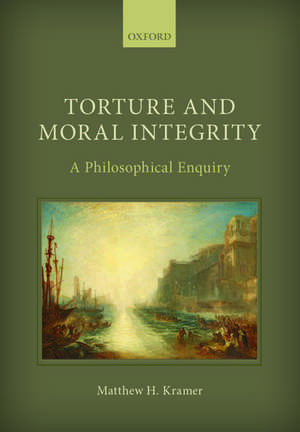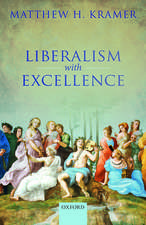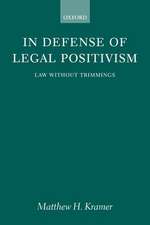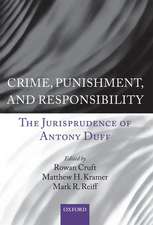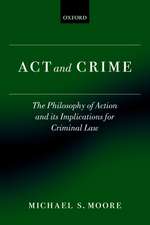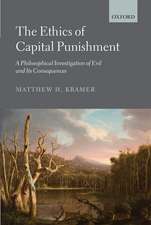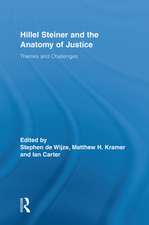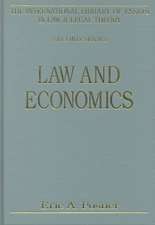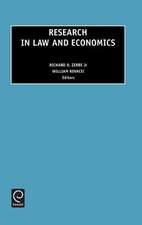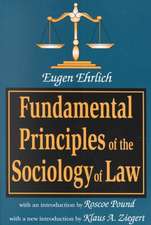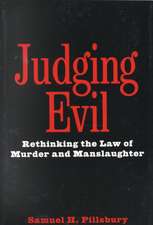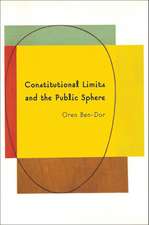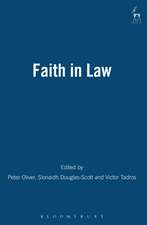Torture and Moral Integrity: A Philosophical Enquiry
Autor Matthew H. Krameren Limba Engleză Paperback – 14 feb 2019
| Toate formatele și edițiile | Preț | Express |
|---|---|---|
| Paperback (1) | 283.07 lei 10-16 zile | |
| OUP OXFORD – 14 feb 2019 | 283.07 lei 10-16 zile | |
| Hardback (1) | 645.48 lei 31-37 zile | |
| OUP OXFORD – 16 apr 2014 | 645.48 lei 31-37 zile |
Preț: 283.07 lei
Preț vechi: 324.56 lei
-13% Nou
Puncte Express: 425
Preț estimativ în valută:
54.18€ • 58.87$ • 45.54£
54.18€ • 58.87$ • 45.54£
Carte disponibilă
Livrare economică 19-25 martie
Preluare comenzi: 021 569.72.76
Specificații
ISBN-13: 9780198842590
ISBN-10: 0198842597
Pagini: 368
Dimensiuni: 163 x 234 x 19 mm
Greutate: 0.54 kg
Editura: OUP OXFORD
Colecția OUP Oxford
Locul publicării:Oxford, United Kingdom
ISBN-10: 0198842597
Pagini: 368
Dimensiuni: 163 x 234 x 19 mm
Greutate: 0.54 kg
Editura: OUP OXFORD
Colecția OUP Oxford
Locul publicării:Oxford, United Kingdom
Recenzii
The book under review is one of the most comprehensive intellectual efforts to address the thorny issue of torture that I have seen... Putting the discussion of torture in the broader perspective of torture in general and of the nature of morality is not the only merit of this book; Kramer also zooms in on the particularities that come with interrogational torture. He discusses and analyses in great detail competing interpretations of the wrongfulness of torture by drawing on a wealth of cases. As a result, Kramers book provides us with an extensive overview of the recent discussion on (interrogational) torture. The manner in which he dissects these interpretations and cases is often illuminating... Even if one is not convinced by Kramers distinction between moral permissibility and moral optimality, the book still provides a comprehensive treatment of the literature on torture.
Well written, concise, and engaging... Kramer is so convincing in his argument that it will be impossible for a reader to read Dershowitz without recalling the faults considered by Kramer... Kramer's book invites lawyers to think again about generally held presuppositions about the legality of torture.
Torture and Moral Integrity is an impressively comprehensive treatment of its subject. Kramer painstakingly develops a taxonomy of torture that is far more detailed than is usually found in this literature, and advances acute challenges to many of its most prominent figures (such as Shue, Nagel, and Dershowitz). [His] book remains a valuable resource for anyone trying to think honestly about the moral and legal status of torture in light of all the purposes that it might seem to serve.
In Torture and Moral Integrity Kramer carefully and thoughtfully develops an argument for an absolute moral prohibition on most types of torture. The book's structure reflects Kramer's commitment to starting from the most foundational questions, like the general structure of morality and building up to more practical and concrete questions...Kramer's book is a must for anyone seriously considering the question of torture, for a number of reasons: one, it is one of the most thorough analyses of the breadth of literature on torture; two, it starts from the most foundational questions and builds up to concrete, practical proposals and three, it is genuinely original.
Well written, concise, and engaging... Kramer is so convincing in his argument that it will be impossible for a reader to read Dershowitz without recalling the faults considered by Kramer... Kramer's book invites lawyers to think again about generally held presuppositions about the legality of torture.
Torture and Moral Integrity is an impressively comprehensive treatment of its subject. Kramer painstakingly develops a taxonomy of torture that is far more detailed than is usually found in this literature, and advances acute challenges to many of its most prominent figures (such as Shue, Nagel, and Dershowitz). [His] book remains a valuable resource for anyone trying to think honestly about the moral and legal status of torture in light of all the purposes that it might seem to serve.
In Torture and Moral Integrity Kramer carefully and thoughtfully develops an argument for an absolute moral prohibition on most types of torture. The book's structure reflects Kramer's commitment to starting from the most foundational questions, like the general structure of morality and building up to more practical and concrete questions...Kramer's book is a must for anyone seriously considering the question of torture, for a number of reasons: one, it is one of the most thorough analyses of the breadth of literature on torture; two, it starts from the most foundational questions and builds up to concrete, practical proposals and three, it is genuinely original.
Notă biografică
Matthew H. Kramer is Professor of Legal and Political Philosophy at the University of Cambridge; Fellow of Churchill College, Cambridge; and Director of the Cambridge Forum for Legal & Political Philosophy. He is the author of thirteen previous books and the co-editor of four other books.
